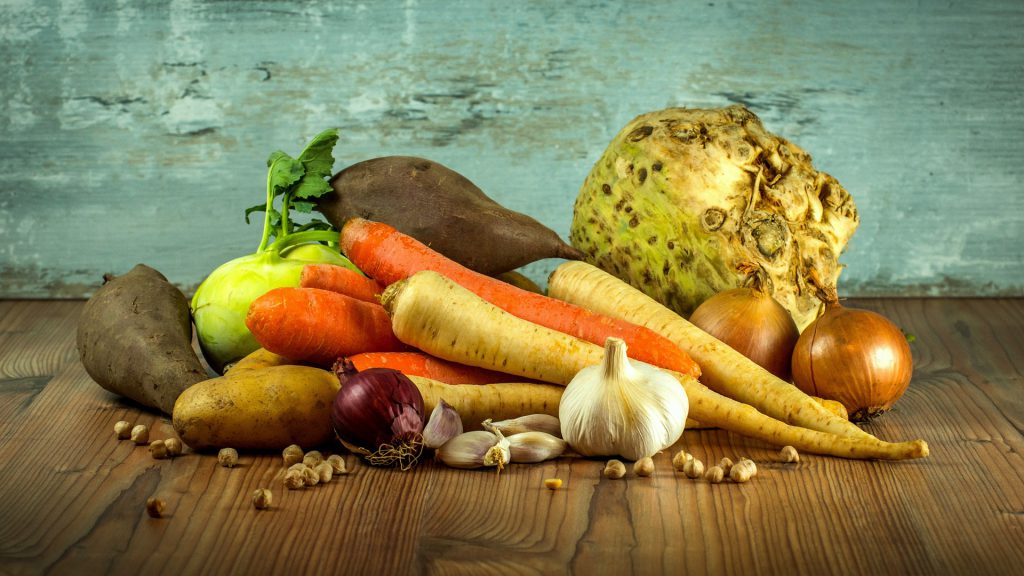Most of us know vitamin C, maybe D. But vitamin A, that’s a tough one. What does vitamin A do for the body? What foods should  I be eating to get vitamin A? All good questions that I plan to answer throughout the body of this article. I recently had a patient ask me about a vitamin supplement she was prescribed and I was a little embarrassed that I had to look it up to give her a good reason. Got me thinking that I need to educate myself about the essential nutrients our body needs. And hey, if I’m learning, why not share with my trusted readers?
I be eating to get vitamin A? All good questions that I plan to answer throughout the body of this article. I recently had a patient ask me about a vitamin supplement she was prescribed and I was a little embarrassed that I had to look it up to give her a good reason. Got me thinking that I need to educate myself about the essential nutrients our body needs. And hey, if I’m learning, why not share with my trusted readers?
I’ve heard of vitamin A, I’m sure I have. But I’ll be honest, if you asked me what it did or why it was important before writing this post, I would have struggled to come up with an answer. I think it’s important to know what nutrients our bodies need any why they need them. Especially if you are taking a vitamin supplement like so many of us do.
Would you take a prescribed medication without knowing what it was or what it did to your body? I hope the answer is no, but sadly, I see a lot of people that have no idea what medications they are taking or why they are taking them to begin with. Education is key people. We need to know what we are putting in our bodies. Anyway, it got me thinking, so I came up with the idea of doing a “vitamin series” for my website. Let’s start at the beginning of the alphabet…Vitamin A.
What Is Vitamin A?
Vitamin A, like other vitamins, is an organic compound. Technically speaking, it’s a group of organic compounds. That’s as technical as I can get, because I’m not a chemist. For a more sophisticated answer, please refer to my friend, Wikipedia. But seriously, it’s a group of compounds that are found in certain foods. I know that doesn’t mean much, but we are just getting started here, stick with me.
There are different forms of vitamin A. The 2 big groups are retinol and the carotenes:
- Retinol- this form of vitamin A is found in animal products
- Carotenes (alpha-, beta- gamma-)- these are the vitamin A forms found in fruits and vegetables. Actually, when we eat these forms, our body has to break it down and turn it into retinol. You may have heard of beta-carotene, that is the most common carotene and it causes the foods that contain it to be red-orange (carrots for example…get it, ‘carrots’, ‘carotene’…coincidence? I don’t think so).
What Does Vitamin A Do?
Ok, so we know that vitamin A is a group of compounds found both in animal products and fruits and vegetables. But so what? Why should I care. Well, turns out vitamin A is pretty important for us humans. It plays an important role in several key processes in our body:
- Vision- vitamin A is essential to good vision. Basically, it is used by our retina to help send signals through our optical nerve which lets us see all the wonderful stuff we like to look at (‘retina’, ‘retinol’…get it? get it?)
- Immune System- vitamin C is well known as an important contributor to our immune system, but vitamin A also plays an important part in making sure our body responds to illnesses and other injuries effectively
- Bone Metabolism- vitamin A helps with bone growth, however too much vitamin A may be responsible for bone lose and increased risk of fracture
- Blood Cell Production- vitamin A helps with the process of producing our blood cells
- Skin Health- vitamin A helps maintain healthy skin. “Retinoid drugs” are often prescribed to help treat acne for example.
- Teeth- vitamin A helps keep gums healthy, prevents dry mouth, aides in healing.
Vision is vitamin A’s primary job in our body, but as you can see, it plays an important role in several other bodily functions. P.S.- the recommend daily allowance (RDA) of vitamin A is 700 mcg for healthy women and 900 mcg for healthy men.
What Foods Are Rich In Vitamin A?
If you were paying attention earlier, you might know that carrots are high in vitamin A, that’s why they are orange. But did you know that the richest sources of vitamin A are actually animal based? Well, actually if you were really paying attention up above you may have suspected that. The vitamin A that is absorbed from fruits and vegetables needs to be broken down into the form of vitamin A our body uses. The animal sources of vitamin A are already in that form. Anyway, here’s a list of some of the richest sources of vitamin A: 
- Beef liver
- Lamb liver
- Cod liver oil
- Sweet potato
- Winter squash
- Kale
- Carrots
- Mackerel
- Salmon
- Collards
- Mango
I tried to include a nice combination of meats and vegetables. Other fruits also have some vitamin A, but mango is one of the richest fruit sources. Sweet potato, maybe surprisingly (maybe not) packs a lot more vitamin A than carrots do.
For example, one carrot contains about 45% of the vitamin A we need for a day, where an average sized sweet potato contains about 200%! Sweet potatoes really are a super food, I need to dedicate an entire article on the subject because we really need to eat more sweet potatoes. I actually only started eating them when we had our son 3 years ago. Sweet potato is an easy baby food to make yourself. He loved it, so we made it all the time so I eventually starting eating it too.
I don’t think I’ve ever had liver before, don’t think I’m gonna really start either. Luckily, a lot of the fatty fish pack a lot of vitamin A too.
What Happens If I Don’t Get Enough Vitamin A?
 As you can see from the extensive list above, if you eat a fairly healthy, balance diet you are likely to get plenty of vitamin A. However, if you are not eating fruits and vegetables, or you live in an impoverished country, you may not. And your health could decline due to it.
As you can see from the extensive list above, if you eat a fairly healthy, balance diet you are likely to get plenty of vitamin A. However, if you are not eating fruits and vegetables, or you live in an impoverished country, you may not. And your health could decline due to it.
A diet lacking vitamin A could lead to a condition called xerophthalmia (don’t ask me how to pronounce that please) which is difficulty seeing in low light environments. This can lead to blindness. Remember, vitamin A is essential to our vision.
Dry irritated skin can be another sign of insufficient vitamin A, as well as hair loss.
Getting too much vitamin A can also be a problem. Symptoms are fairly similar to low levels, but include: double vision, chapped lips, headache, dizziness, muscle/joint pain.
Vitamin A Is Important!
The takeaway from this post should be that vitamin A is a very important nutrient! It plays a vital role in supporting our eye health and making sure our retina is working- this allows us to see, which I know I enjoy doing. You know, seeing things is pretty fun.
It’s pretty easy to consume enough vitamin A daily through a healthy diet. You could always supplement with vitamins, but it’s always better to get the nutrients through food. I mean come on, one sweet potato has 200% of the RDA. Split a sweet potato with your spouse and you’re good to go.
I hope this article was helpful in figuring out what vitamin A does for the body. Writing it was very educational for me and I hope you learned something as well.
Leave a comment or question below and I’ll get back to you soon.



Hey will!
Great website and very informative article! I can not believe how little I knew about this. I think it is time for me to brush up my vitamin knowledge. Also, I like the idea of doing a vitamin series. Especially since you will introduce a lot of vitamins the majority of people don’t know too much about.
Thanks for sharing and keep up the good work! 🙂
Hanna
thanks Hanna, I’m the same way. I can never remember what all these vitamins do for the body. It’s pretty interesting and always good to learn something new.